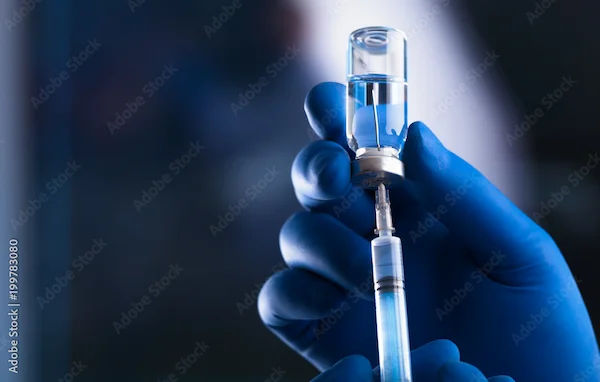Hematuria Treatment Options and Strategies
Concerned about blood in your urine? Learn the causes of hematuria, diagnostic methods, and effective treatments—from infections and kidney stones to serious conditions like cancer.


Hematuria, or blood in the urine, can be alarming. While it may not always indicate a serious condition, it should never be ignored. If you or a loved one has noticed blood in the urine, understanding the possible causes, treatments, and management strategies can help ease concerns and guide you toward the right care.
What Is Hematuria?
Hematuria simply means the presence of red blood cells in the urine. It can be:
- Gross Hematuria: When the blood is visible, making the urine appear pink, red, or brown.
- Microscopic Hematuria: When the blood is only detectable under a microscope during a urine test.
Common Causes of Hematuria
Several conditions can lead to hematuria, including:
- Urinary Tract Infections (UTIs): Common in women, causing burning pain while urinating.
- Kidney or Bladder Stones: Can cause sharp pain and blood in urine.
- Enlarged Prostate (in men): May lead to difficulty urinating and blood in urine.
- Kidney Disease: Conditions like glomerulonephritis affect kidney function.
- Vigorous Exercise: Sometimes causes temporary hematuria.
- Certain Medications: Like blood thinners (aspirin, warfarin).
- Bladder or Kidney Cancer: Rare but requires prompt diagnosis.
When Should You See a Doctor?
Seek medical attention if you notice:
- Blood in urine (even once)
- Painful urination
- Frequent urination
- Fever or back pain
- Unexplained weight loss
Early diagnosis helps rule out serious conditions and ensures timely treatment.
Diagnosing Hematuria
Your doctor may recommend:
- Urine Tests: To check for infection, kidney function, or abnormal cells.
- Blood Tests: To assess kidney health.
- Imaging Tests: Ultrasound, CT scan, or MRI to detect stones, tumours, or blockages.
- Cystoscopy: A thin tube with a camera examines the bladder and urethra.
Treatment Options for Hematuria
Consult Top Specialists
Treatment depends on the underlying cause:
1. Infections (UTIs, Kidney Infections)
- Antibiotics: Prescribed to clear bacterial infections.
- Increased Water Intake: Helps flush out bacteria.
2. Kidney or Bladder Stones
- Pain Relief & Hydration: Small stones may pass naturally.
- Lithotripsy: Shock waves break larger stones for easier passage.
- Surgery: Rarely needed for very large stones.
3. Enlarged Prostate (BPH)
- Medications: To shrink the prostate or relax bladder muscles.
- Minimally Invasive Procedures: Like laser therapy or TURP (surgery to remove excess prostate tissue).
4. Kidney Disease
- Dietary Changes: Low-salt, low-protein diet to ease kidney strain.
- Medications: To control blood pressure and reduce protein loss in urine.
5. Cancer (Bladder/Kidney)
- Surgery: Tumour removal or partial/full organ removal.
- Chemotherapy/Radiation: If cancer has spread.
6. Exercise-Induced Hematuria
- Rest & Hydration: Usually resolves on its own.
Lifestyle & Prevention Tips
While not all cases of hematuria are preventable, these steps can help reduce risks:
- Stay Hydrated: Drink plenty of water to flush out toxins.
- Avoid Smoking: Smoking increases bladder and kidney cancer risk.
- Maintain Good Hygiene: Prevents UTIs, especially in women.
- Limit Salt & Processed Foods: Helps prevent kidney stones.
- Exercise Moderately: Avoid excessive strain that may cause hematuria.
When to Consult a Specialist?
If hematuria persists or is accompanied by other symptoms, consult a urologist or nephrologist for further evaluation.
Need Help? Book a Consultation Today!
If you're experiencing blood in your urine, don’t wait. Early diagnosis leads to better outcomes. You can easily book a consultation or lab test through Apollo 24|7 for expert advice and care.
Conclusion
Hematuria can be scary, but in many cases, it’s treatable. Pay attention to your body, seek medical advice, and follow a healthy lifestyle to keep your urinary system in good shape.
Consult Top Specialists
Consult Top Specialists

Dr. Moin Mohammed Bavakatti
Urologist
13 Years • MBBS, MS (General Surgery), Mch (Urology), DNB (Urology), Diploma in Minimal Access Surgery, Fellow of Internal College of Robotic Surgeons), Vinci Surgical system, Fellow in Endocrinology, Clinical and Research fellow in Laparoscopic Urology, Laser Endourology & Laparoscopic & Robotic Urology, Fellowship in 3D laparoscopic Urology
Bengaluru
Dr Moin Mohammed Bhavikatti Clinic, Bengaluru
(150+ Patients)

Dr. Yogesh Taneja
Urologist
15 Years • MBBS , MS (General surgery), DNB (Genito Urinary Surgery)
Gurugram
Procyon Health, Gurugram
Dr. Mohammed Rehan Khan
Urologist
8 Years • MBBS, MS (General Surgery), Mch (Urology)
Barasat
Diab-Eat-Ease, Barasat

Dr Sriharsha Ajjur
Urologist
10 Years • MBBS,MS,Mch
Bengaluru
Apollo Hospitals Jayanagar, Bengaluru

Prof. Dr. Sreedhar Reddy
Urologist
20 Years • MBBS,MS,MCH(Urology),DNB(Urology), MNAMS(Urology),FIMS,FRTS
Bengaluru
Apollo Hospitals Bannerghatta Road, Bengaluru
(75+ Patients)
Consult Top Specialists

Dr. Moin Mohammed Bavakatti
Urologist
13 Years • MBBS, MS (General Surgery), Mch (Urology), DNB (Urology), Diploma in Minimal Access Surgery, Fellow of Internal College of Robotic Surgeons), Vinci Surgical system, Fellow in Endocrinology, Clinical and Research fellow in Laparoscopic Urology, Laser Endourology & Laparoscopic & Robotic Urology, Fellowship in 3D laparoscopic Urology
Bengaluru
Dr Moin Mohammed Bhavikatti Clinic, Bengaluru
(150+ Patients)

Dr. Yogesh Taneja
Urologist
15 Years • MBBS , MS (General surgery), DNB (Genito Urinary Surgery)
Gurugram
Procyon Health, Gurugram
Dr. Mohammed Rehan Khan
Urologist
8 Years • MBBS, MS (General Surgery), Mch (Urology)
Barasat
Diab-Eat-Ease, Barasat

Dr Sriharsha Ajjur
Urologist
10 Years • MBBS,MS,Mch
Bengaluru
Apollo Hospitals Jayanagar, Bengaluru

Prof. Dr. Sreedhar Reddy
Urologist
20 Years • MBBS,MS,MCH(Urology),DNB(Urology), MNAMS(Urology),FIMS,FRTS
Bengaluru
Apollo Hospitals Bannerghatta Road, Bengaluru
(75+ Patients)




